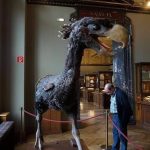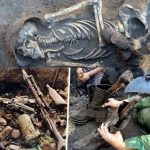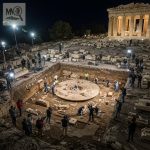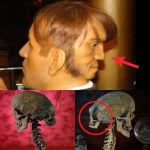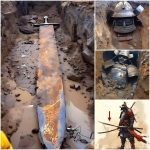The Breaking Wheel of Gdańsk – A Medieval Echo of Justice and Cruelty
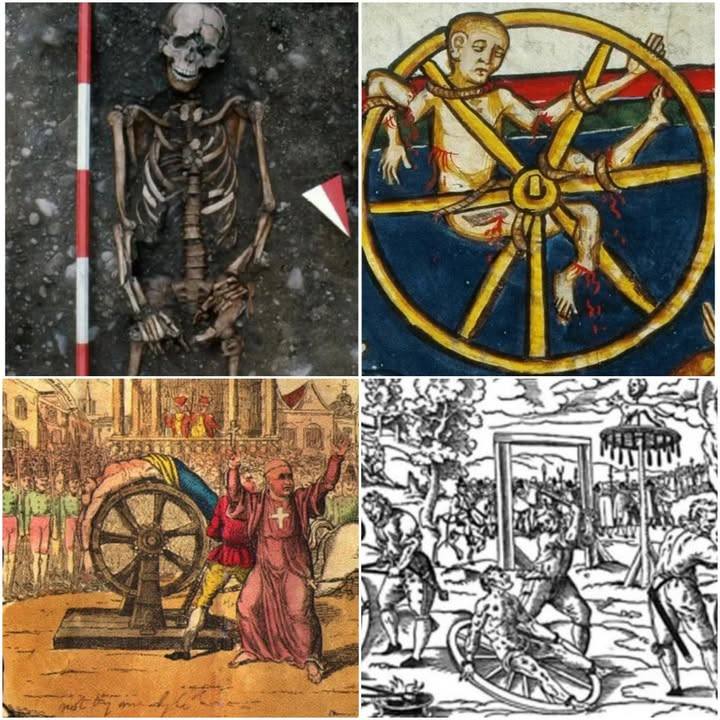
Archaeologists in Gdańsk, Poland, have uncovered a haunting relic of medieval justice — the skeletal remains of a man who met his end on the breaking wheel, one of history’s most brutal instruments of execution. Buried beneath centuries of soil, his bones tell a story that merges faith, fear, and punishment — a grim reminder of how cruelty once hid behind the mask of righteousness.
A Punishment Designed to Terrify

From the 13th to the 18th centuries, the breaking wheel reigned as one of Europe’s most horrifying tools of public execution. Reserved for the worst of crimes — murder, treason, or heresy — the condemned were tied to a large wooden wheel. One by one, their limbs were shattered by iron rods, their bones breaking in a ritual of agony meant to both punish and warn. Afterward, the wheel was raised high, the broken body displayed for all to see — a grotesque theatre of justice and deterrence.
The discovery in Gdańsk offers physical proof of this dark tradition. The unearthed skeleton bears unevenly healed fractures — signs of previous violence — suggesting the man may have endured torture long before his final punishment. His death was not only brutal but symbolic, staged in the name of divine and royal law.
Between Faith and Fear
In medieval Europe, justice was inseparable from faith. The church’s blessing turned punishment into purification, and pain into salvation. To suffer was to cleanse sin. But for victims like the man of Gdańsk, such reasoning offered little comfort. The breaking wheel was both execution and spectacle — an event where public piety met primal cruelty. Crowds gathered not only to witness justice but to reaffirm their fear of divine wrath.

The rediscovery of this skeleton forces us to confront an uncomfortable truth: the institutions that claimed to uphold morality were often complicit in its most savage violations. What was called justice was, in reality, a ritual of control — a performance of dominance where mercy had no place.
Echoes Beneath the Soil
The bones found beneath Gdańsk are silent, yet they speak volumes. They remind us of the fragility of compassion in times when belief justified brutality. The archaeologists who brushed away centuries of earth did more than uncover a body — they revived a voice from a forgotten past, a whisper that challenges us to reflect on how civilizations define justice.
A Mirror of the Human Condition
Though centuries have passed since the wheel last turned, its shadow lingers. The Breaking Wheel of Gdańsk is not merely a historical find — it is a mirror reflecting the extremes of human morality. In the name of order, the medieval world sanctified pain; in the name of truth, it silenced compassion. And yet, by unearthing this man’s remains, modern science restores to him what history denied: dignity, remembrance, and a final, unbroken voice.

